"So the point of an artist... Is you're like a fire fighter. When everyone is running out of the burning building, the fire fighters are running into it... because that's their job. And the example for an artist is not to run away from feelings, but to dig into the feeling."
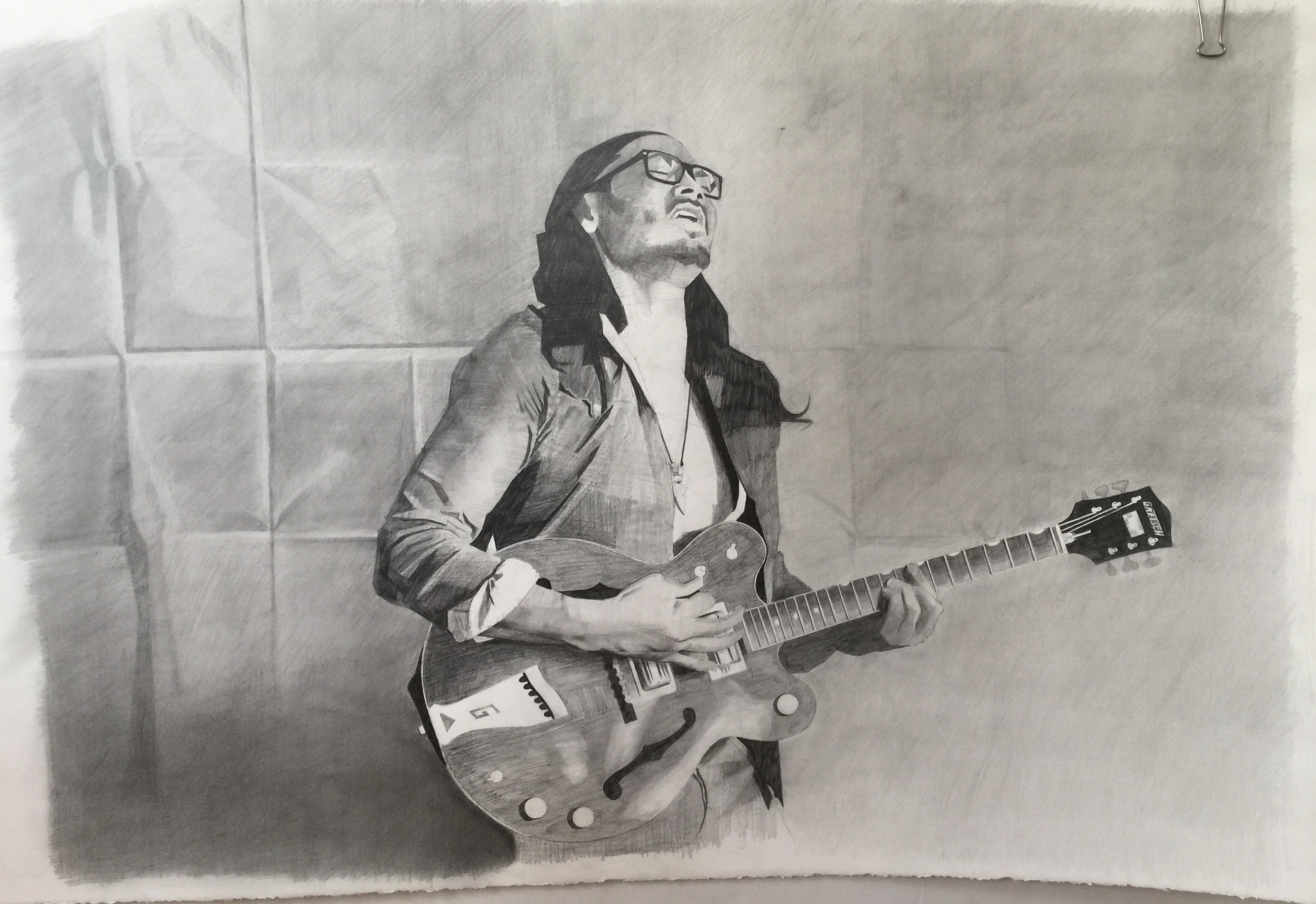
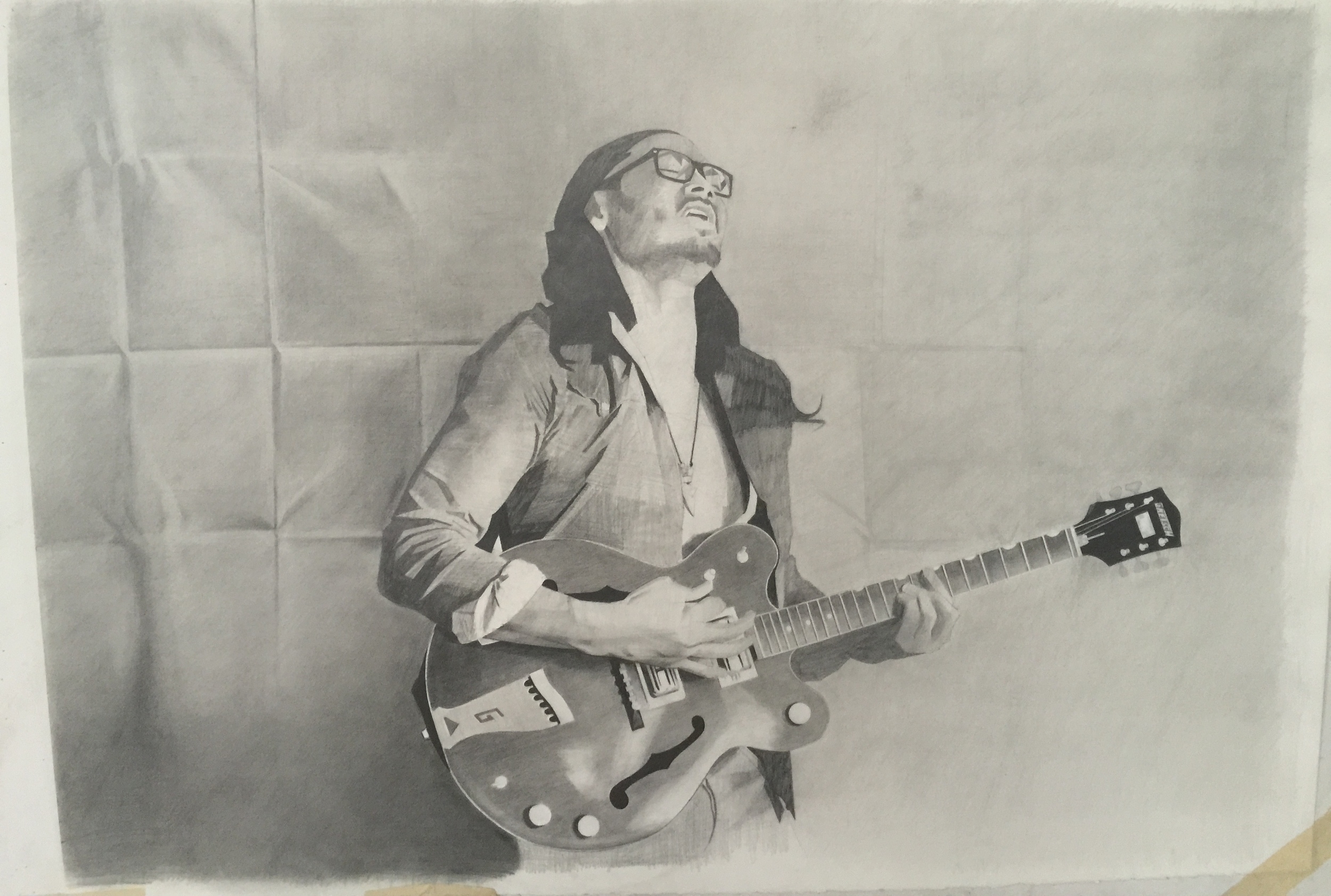
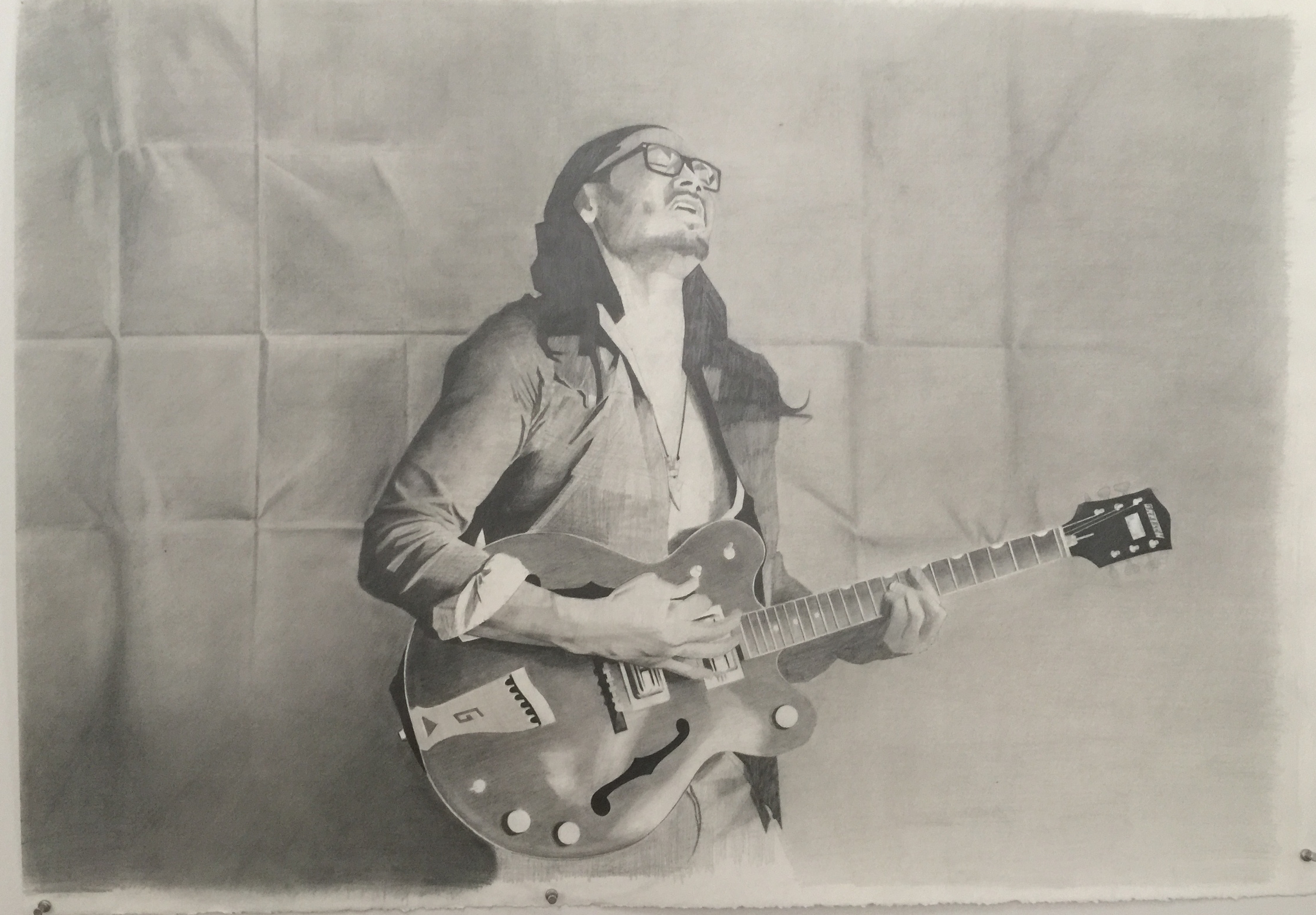

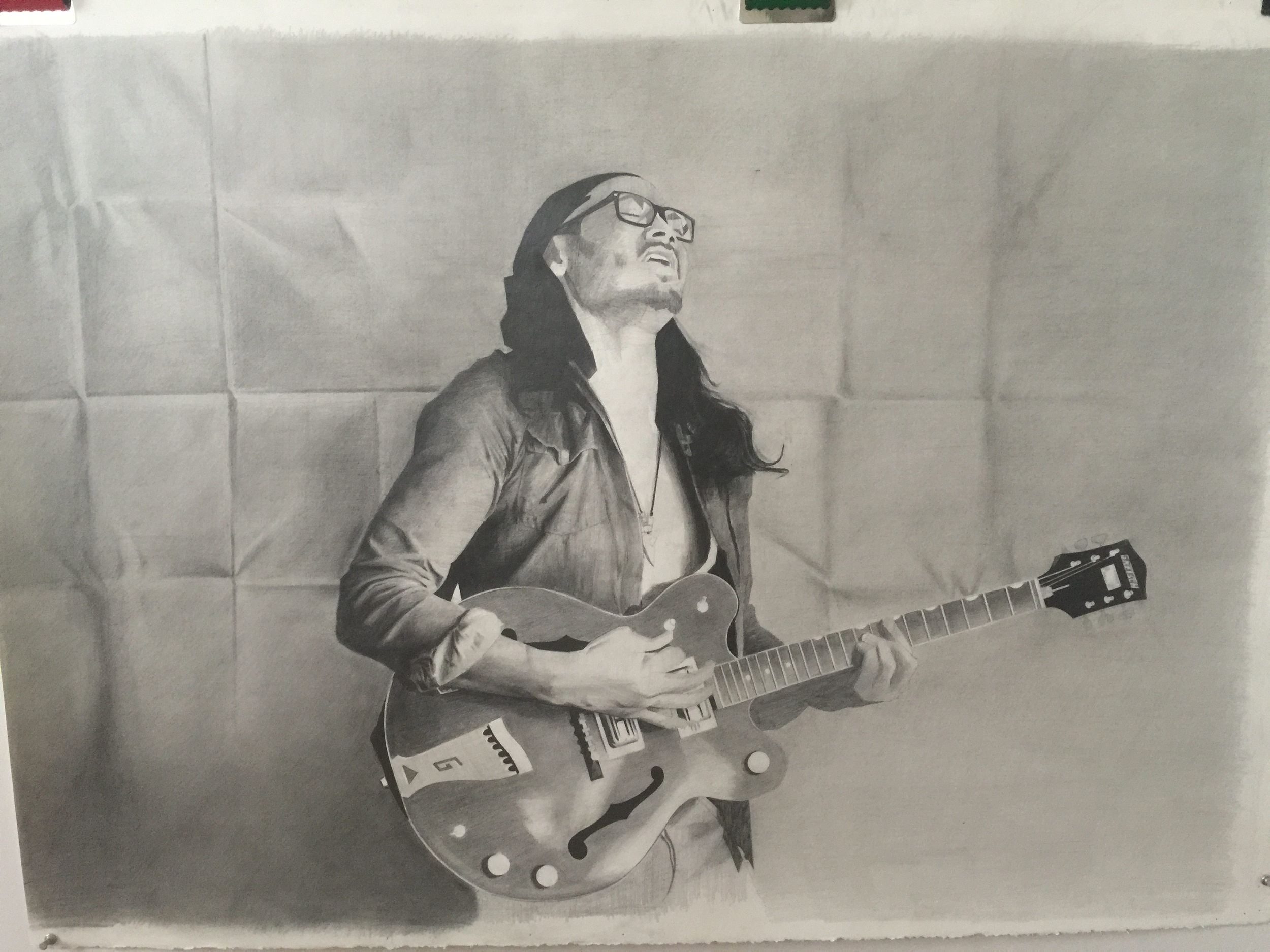
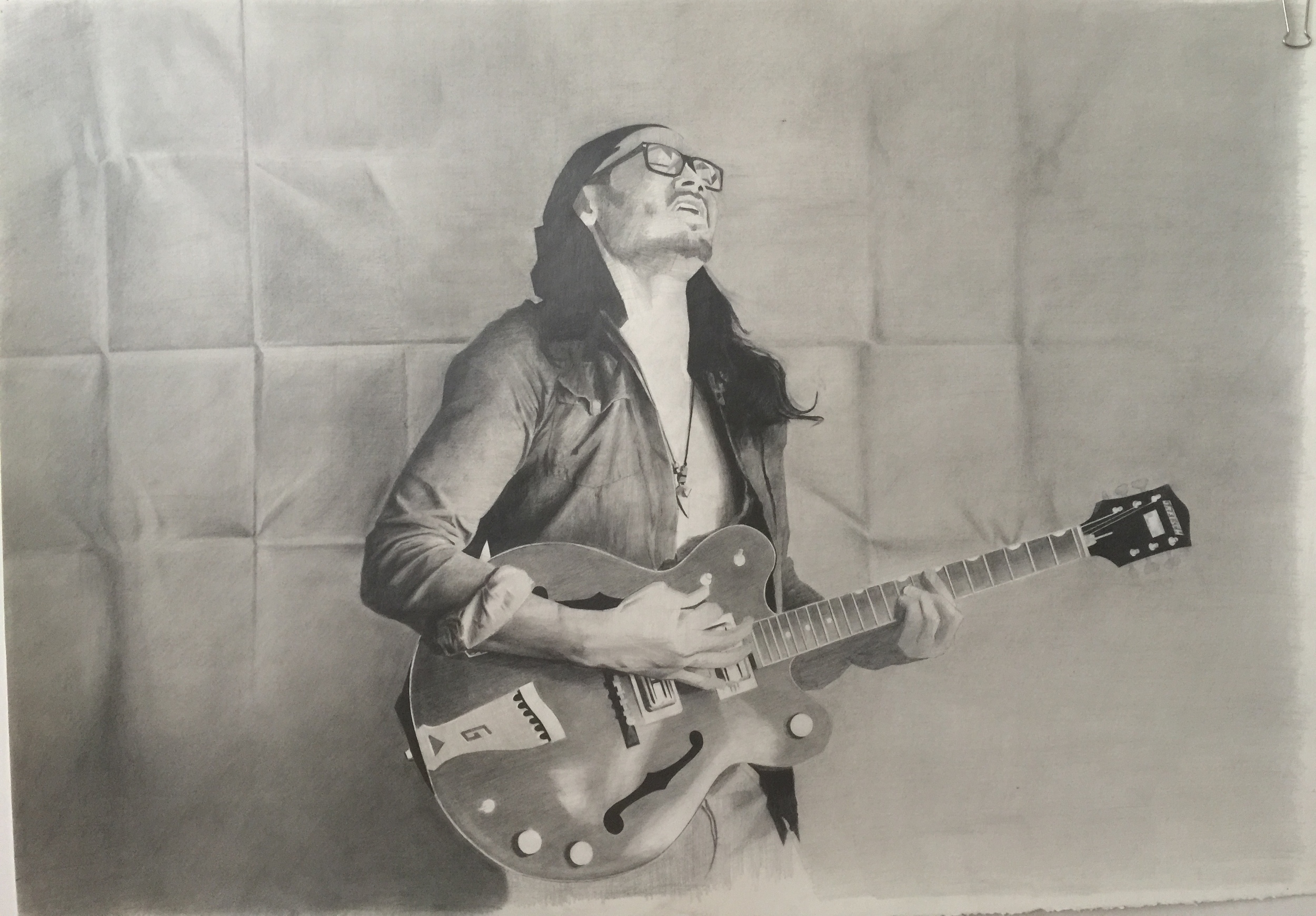
The previous post was the beginning of my conversation with Andrew Zapanta (Z) and the beginning stages of an involved drawing. The conversation was with concern to how Andrew discovered music as a child and how that carried into his early adult years. The second portion of our conversation is about the creative process and making music.
A: You know, it's interesting because I have a friend who is classically trained in voice. He kept getting inspiration from paintings which is the beginning of our friendship and our relationship. I get a lot of my inspiration form music. I am shocked and floored and amazed how someone can say exactly something that you feel. They say it for you. Not for you in a sense, but you can relate. That's recently a conversational piece that I had with my friend a few days ago. When people look at art work, that's very good and very honest, they can relate. They see themselves in it. There's this whole mirroring.....
Z: A 100%... A 100%
A: Do you ever get that from visual work? Or are you still in this world of sound?
Z: Well the beautiful thing is I can get it from both. It's funny because I totally echo that. I remember somebody saying about the whole sound part, the song writing for example. They said, "The whole point of this is to express things to other people who don't have the inclination to express. It is for you to express it for them. And I always thought that so true because why are artists so damn sensitive? So the point of an artist... Is you're like a fire fighter. When everyone is running out of the burning building, the fire fighters are running into it... because that's their job. And the example for an artist is not to run away from feelings, but to dig into the feeling. You know? We're not supposed to shy away from feeling whether we want to or not. I mean if you really want to be good artist, an emotional artist, you have to be able to feel and develop a relationship with that feeling rather being like, "nah nah nah nah, I'm not gonna feel sad today." It's more like, "No, I'm gonna feel this, almost to the point that have no choice but to feel it." That's how sensitive artists can be. They have to feel that emotion and therefore...
A: Put it into their work
Z: Put it into their work. Right. And hopefully be able to be honest, and be able to bring that honesty out in that emotion. And when it's THE most honest is when people feel it. And people are like, "Oh yeah, that's it, thats what I was feeling, this is My song." And to translate to art work, it's the same thing. That's why all these things are so interesting. Something really abstract... just the way the colors are interacting in a way, or the brushstrokes, or its splattered, or whatever it is somehow drawing out an emotion in you...
A: Yeah, it's because of the effort that went into it
Z: Yeah! And if that emotion goes in...
Our conversation at this point went into several directions regarding formalist technique and a recounting of family histories. In turned out that both of our mothers are Eastern European and crossed many cultural boundaries at a time when it was extremely uncommon and unaccepted. We both seemed to come from environments that had a complete irreverence for rules and accepted social norms. They both saw bigger worlds, however, we had to bring the conversation back.
A: How did you discover music? You came from a musical family, you went around humming things along, you went to school for art, you had a roommate that was a voice major that was hippy dippy..
B: Drum major.
A: Right, drum major. Soon is this how you discovered music? As in to actually do it?
Z: I started writing songs when I was sixteen. I would listen to Nirvana, and I would remember thinking I love singing but I do not want to sing other peoples' songs. I'd rather be writing my own stuff. So I started there and then I would use these little karaoke machines, the double tape deck karaoke machines. I would record guitar and voice and I would flip it over to the other one and I would sing harmonies. I would keep flipping it over and play base notes on the guitar, so by the time you played it the first time you heard (makes the icky white noise of a cassette) and then all the music under it because of the shitty quality way to do it. But then by the time I was twenty-two I wrote a couple of songs when I lived in San Francisco and they came out really good and people really liked them and I thought to myself and I was sitting in the sun... I was super hippy out there, you know, no shoes, no shirt, you know, that guy, long hair, playing guitar.
A: Yeah... lots of festivals.
Z: Exactly.
A: Lots of festivals.
Z: And I was like, you know what? I really, really like this. I think this is what I prefer doing. Because I did all the art stuff, got out of art school and had no idea what I was supposed to do. So I wound up working for companies building displays because I did sculpture as my major. But I wasn't expressing myself. So that's what music became for me. I would use it as my form of expression that I could carry around with me and I didn't need to buy canvases. I would always doodle and get my visual stuff out, but then my doodling started to turn into writing. And my books started to turn into journals. And it became more about poetry and I could draw from that for lyrics to songs. I just started to transform my mode of expression into music.
A: Again sound.
Z: And yeah, it started to turn into sound instead of pictures.